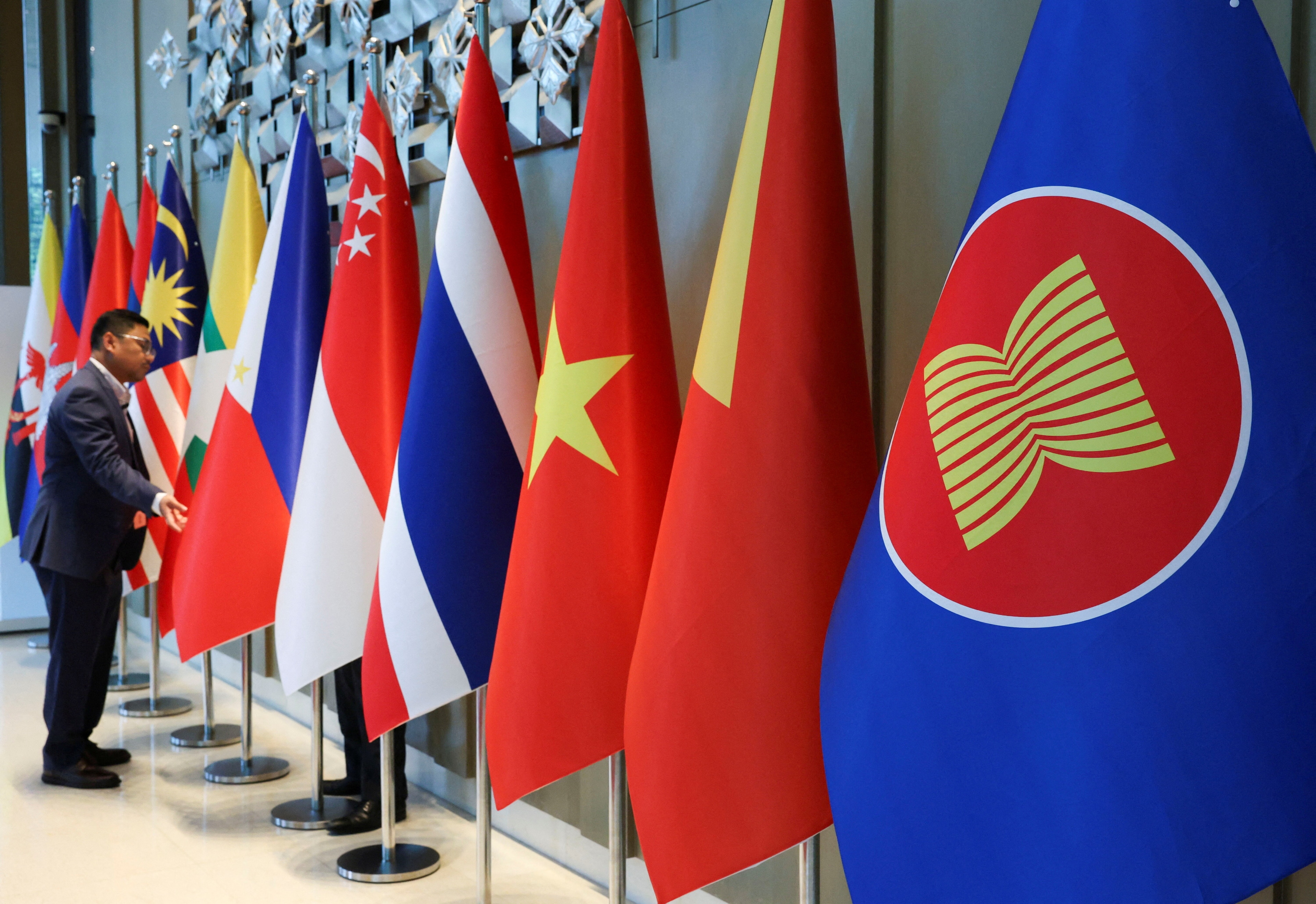The world's biggest problem solvers need to craft better narratives

Leaders need and can benefit from crafting more effective, more galvanising, narratives.
Image: Toni Kretchmer
Stay up to date:
Global Cooperation
Listen to the article
- In the fight against climate change, those taking action must understand the power of crafting an effective narrative.
- Narratives like that of the “carbon footprint” can be persistent and have the power to shape perceptions on a mass scale.
- But the power of the narrative can also be used malignantly; for example, by hostile states or those advocating against climate action.
Narratives help us to make sense of complex or confusing information by providing a clear and structured way of presenting a story.
People are more persuaded by the information presented within a narrative because a good narrative helps to ease information processing. Those trying to solve the world’s most pressing challenges must take notice of this.
One example of this is the term “carbon footprint,” and how it came to be. In 2004, a major oil producer launched a carbon footprint calculator for everyday people to assess how much their daily life contributed to global warming. Today, the carbon footprint is a well-known concept, used everywhere to remind each of us how we are responsible for heating our planet.
What is less well known is that the carbon footprint is a specifically designed narrative to promote the idea that climate change is not the fault of an oil giant, but that of individuals.
Narratives are a major driver of opinions and provide direction to human decisions.
When considering the issue of climate change, narratives, instead of climate information, play a significant role in prompting or deterring climate action.
The battle for the narrative
The battle between fact and fiction is currently fought by unfair means. The winner is too often not the truth but the side that simplifies and narrates best.
This battle is also not limited to the issue of climate change. We have seen the use of narratives in highly sophisticated disinformation campaigns by countries like Russia for years.
Researcher Nina Jankowitz writes: “Narratives with a kernel of truth are more successful: in fact, fake news encompasses just a sliver of Russian influence operations. The most convincing Russian narratives…are narratives grounded in truth that exploit the divisions in societies.”
The most sophisticated and dangerous misinformation campaigns are the ones that have a deep understanding of how a successful narrative needs to be constructed. Beyond that, Russia has built and perfected distribution mechanisms like information laundering to share and gradually surface manipulated narratives from unverified sources into the mainstream.
Accept our marketing cookies to access this content.
These cookies are currently disabled in your browser.
From misleading to solution-orientated narratives
Beyond discussing our carbon footprint, there are other narrative paths to question the urgency of climate action. One is to be very optimistic about future technological progress that will solve the climate crisis. This narrative is very tempting for entrepreneurs and politicians because it reframes the challenge into a pure growth opportunity without any short-term hardships.
This narrative goes hand in hand with falsely picturing scientists and activists as the aggressors against our lifestyles and prosperity. We must name the real antagonists: irresponsible politicians, bought scientists and some companies failing to live up to the needs of the transition to net-zero.
We must also stop pretending that there is a debate over the facts of climate change. A false balance is a phenomenon that occurs when a news organization or other media outlet presents an issue as being the subject of a debate, even when there is no actual debate or disagreement among experts on the matter.
A doom and gloom narrative, which emphasises problems, costs and adverse impacts is the most dominant narrative about climate change. We equally need constructive, solution-oriented reporting to inspire behavior change.
There is a fine line between the above-mentioned overly optimistic technology vision and a narrative that highlights economic and social development opportunities.
These transformative narratives are built around win-win strategies, which provide practical solutions that provide near-term economic benefit to organizations or individuals and at the same time contribute to meeting climate change goals.
The construction of these transformational narratives about climate change needs to reduce the polarisation and portray both political sides as reasonable to allow the supposed “climate-villain” to change and join the “climate-hero's” quest.
Strong narratives help leaders succeed
Beyond the climate issue, there are important lessons for all leaders here when it comes to constructing a narrative.
A strong shared narrative is a defining factor for highly successful groups or organizations, and has the power to shape not only peoples’ view of the world, but their actions, behaviour and outcomes.
Strong narratives have the power to make or break a business, and that's why admired leaders like Steve Jobs invested time and effort into the perfect alignment of their business goals and the narrative they built around it.
In a world where our perception of what’s happening around us is increasingly mediated by social media and artificial intelligence and swamped with content of all kinds, the ability to distinguish what matters is increasingly difficult.
That’s why narratives matter, and that’s why we need to make sure that the best storytellers and narrators are on the side of the facts and truth — especially when it comes to existential issues like climate change.
Accept our marketing cookies to access this content.
These cookies are currently disabled in your browser.
Don't miss any update on this topic
Create a free account and access your personalized content collection with our latest publications and analyses.
License and Republishing
World Economic Forum articles may be republished in accordance with the Creative Commons Attribution-NonCommercial-NoDerivatives 4.0 International Public License, and in accordance with our Terms of Use.
The views expressed in this article are those of the author alone and not the World Economic Forum.
Related topics:
Forum Stories newsletter
Bringing you weekly curated insights and analysis on the global issues that matter.
More on Global CooperationSee all
Anthony Cano Moncada
July 23, 2025
Mirek Dušek
July 18, 2025
Juan Caballero and Ana Sampaio
July 18, 2025
Robert Piper
July 17, 2025
Lisa Satolli
July 17, 2025
William Dixon
July 16, 2025





